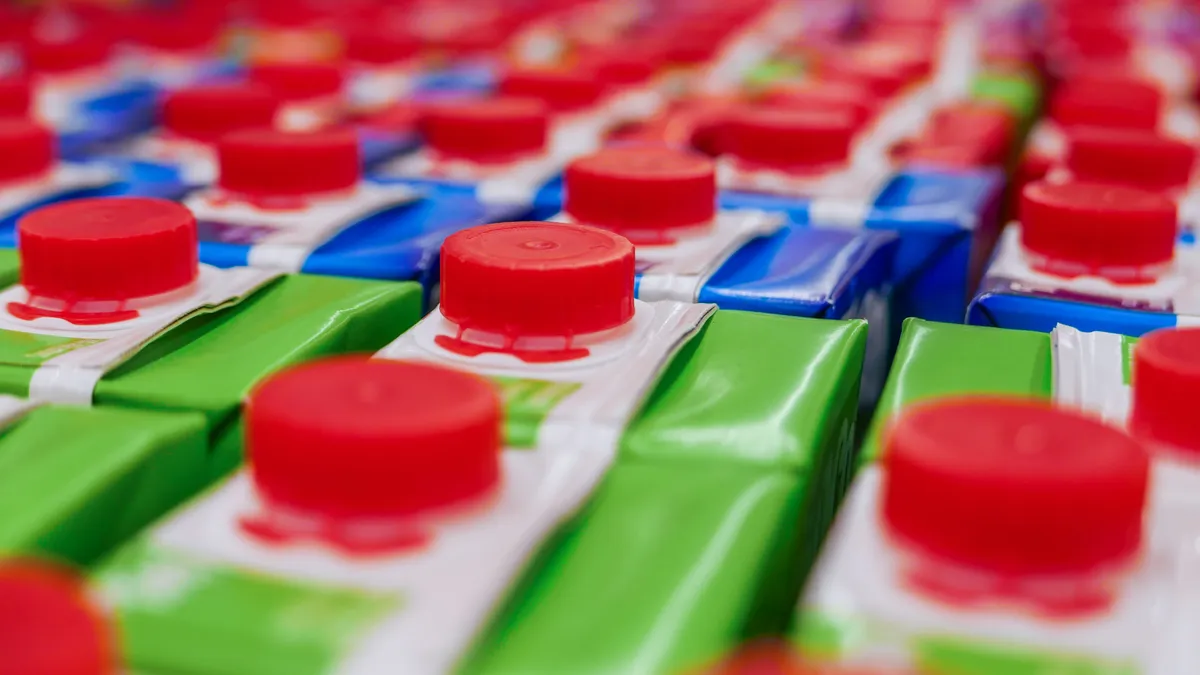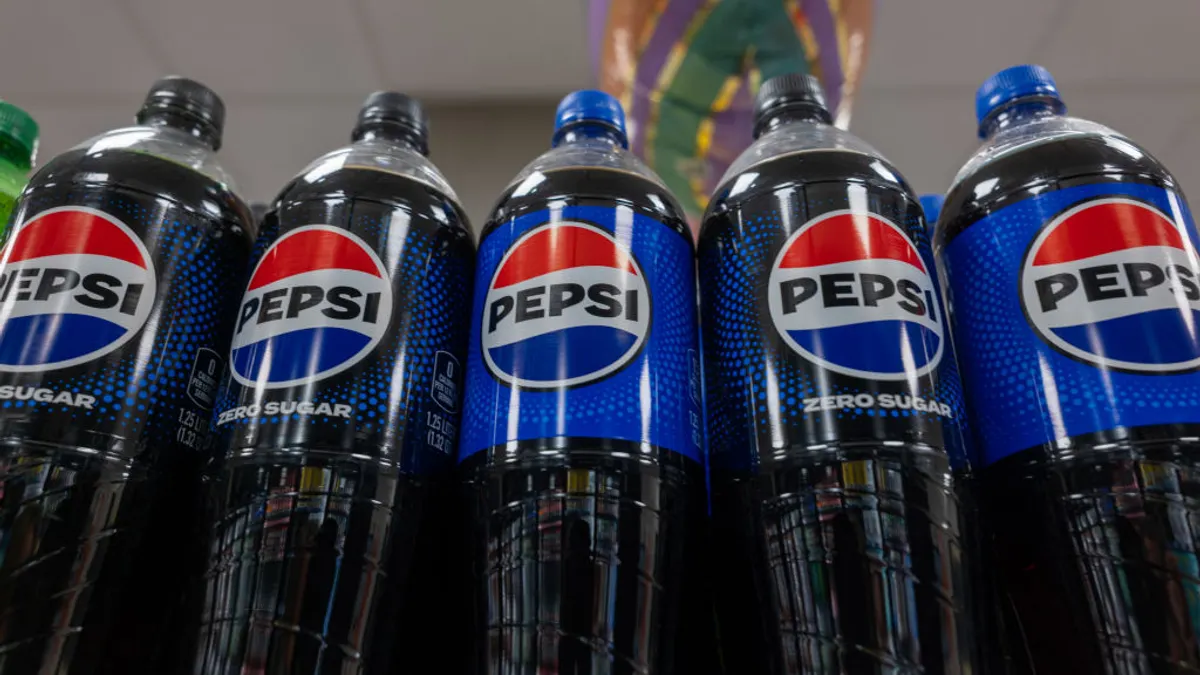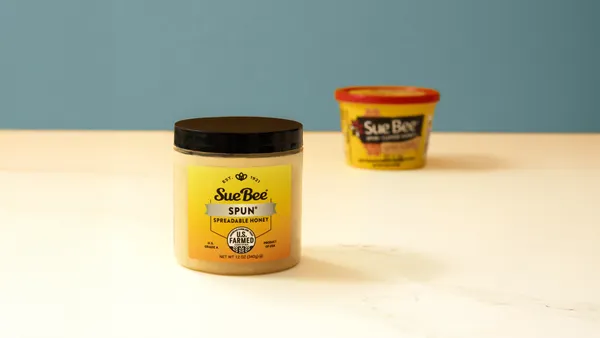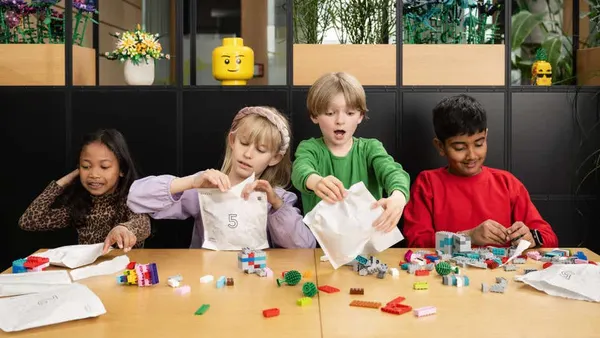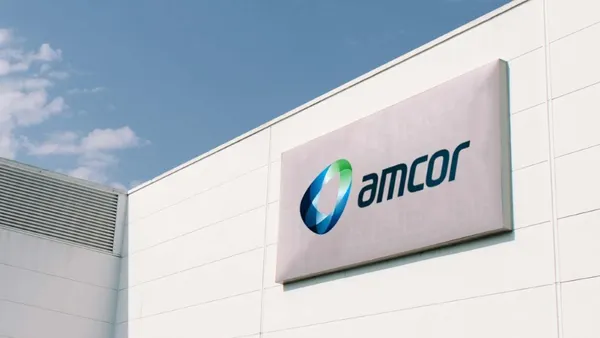Dive Brief:
- The Poly Coated Paper Alliance officially launched this week, with the ultimate goal of widespread end-market acceptance of polycoated paper packaging products. Sonoco, Stanpac, Procter & Gamble, the Kellogg Company, General Mills and the Carton Council are among the initial confirmed members.
- The group will push for universal adoption of product design guidelines, including design for recyclability, and upgraded mill and Institute of Scrap Recycling Industries specifications. They’ll also work to close data gaps about the material and its flow through the supply chain, in addition to developing common messaging for education and outreach.
- The alliance is starting a two-year research and data-gathering process that will run through March 2025 to prepare for the next steps of advancing end-market acceptance. Sustainability and recycling consulting firm RRS is coordinating the alliance’s establishment.
Dive Insight:
Speakers at a recent webinar introducing the alliance and its work said that polycoated paper is a small part of a larger market sector, and it could benefit from having its own voice.
Polycoated fiber increasingly is used for a variety of products including beverage cartons, food boxes, personal care product packaging and food serviceware. The predominantly polyethylene coating layer strengthens the kraft paper and acts as a moisture barrier to prevent fiber and product degradation.
The group’s initial research shows that that “polycoated paper packaging really represents one of the last strong sources of long-strand fiber in the consumer waste stream,” said Jim Frey, leadership committee member and CEO at RRS. “How can we organize to capture that?”
Although the alliance has not yet decided on the full list of products that will fall under its scope, it will focus on items that aren’t currently being studied by other groups, a spokesperson said via email. The Carton Council, for example, is a member, as cartons are typically polycoated fiber products.
In addition to containing high-quality fiber that can be recycled into new paper products, polycoated paper products “are an ideal material for producing sustainable building products due to the small amount of polymer which acts as a bonding agent, eliminating the need for glues,” said Jason Pelz, vice president of recycling projects at the Carton Council, in an emailed statement. “As we work to expand the infrastructure for recycling cartons, we are proud to support similar efforts to improve the infrastructure for other valuable paper-based materials.”
However, the resin layer also complicates fiber recycling. While dedicated fiber packaging, like corrugated boxes, has been widely recycled for some time, coated board like beverage cartons is a newer addition and still isn’t accepted curbside in all markets. The Carton Council recently released data showing that 62% of U.S. households have access to carton recycling, with dozens of communities adding the items to their programs just last year.
One recycling challenge is the varying percentages of resin in different types of polycoated materials. A fiber product with less than 10% resin generally requires different handling than a product comprised of more than 50% resin, for instance. Achieving industry harmonization for fiber thresholds and developing standards is a key focus of the alliance.
“Today there is no clarity on when polycoated paper is recycled, to what degree, what is the thickness of the plastic ... we could be debating for hours on the different rules of thumb,” said Teo Medellin, director of packaging sustainability at Procter & Gamble, during the webinar. “The more scale that we have, the more impact we can achieve together.”
Webinar speakers emphasized that having a diverse membership does not create conflicts of interest, but rather spurs partnerships. Noting that many of the Poly Coated Paper Alliance’s initial members are competitors, Pelz said during the webinar: “We need to work with others ... There is not one, single silver bullet out there to solve these problems.”
Webinar speakers also pointed out that polycoated packaging is expected to show up more in emerging extended producer responsibility proposals, and organizing a group dedicated to the material is beneficial in advance of legislation.
The group is still seeking members and won’t set its budget until all incoming memberships are finalized, the spokesperson said. However, during the webinar, speakers suggested an initial budget estimate of $500,000 annually, which could increase as additional members join and make financial commitments.


